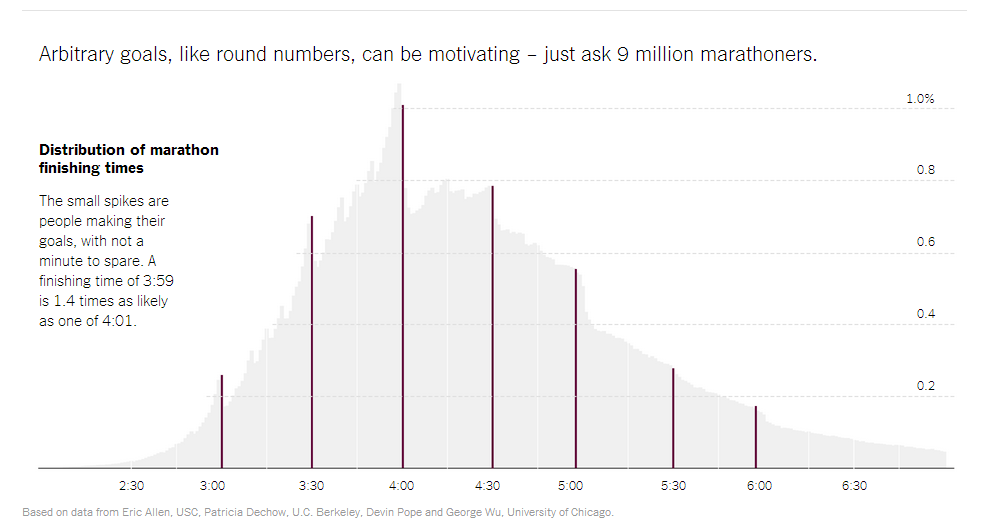What Marathon Runners Have in Common with Used Car Salesmen
In recent posts, I’ve presented several interesting pictures of how arbitrary thresholds influence behavior. I showed how airplane pilots speed up flights to make on-time arrivals, but don’t speed up late flights that won’t make it on time. I’ve shown that the price of used cars changes when the mileage on the odometer passes arbitrary round numbers.
Here’s another picture on this general phenomenon. It shows just how hard marathon runners work the last stages of the race to make specific finishing times:

(Click here to view comments)
